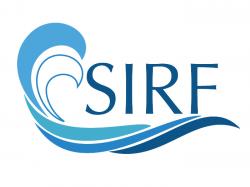SIRF Sponsors Environmental Impact Study
June 12, 2018 | 2 min to read

McLean, VA – A new study, funded in part by the Seafood Industry Research Fund (SIRF), analyzes a decade’s worth of research on the environmental impact of livestock, aquaculture and capture fisheries food production. The study appears in the journal Frontiers in Ecology and the Environment and finds that certain wild-caught fish and farmed mollusks have the lowest environmental impact, while livestock and catfish aquaculture have the highest.
The researchers note that all food production has environmental costs, which differ greatly between different types of animal protein. Their study uses four metrics of environmental impact measures to compare the types of animal food production. The metrics are energy use; greenhouse gas emissions; potential to contribute excess nutrients – such as fertilizer – to the environment; potential to emit substances that contribute to acid rain. In many of these environmental impact categories, seafood fares especially well.
The study finds mollusk aquaculture and small pelagic and whitefish fisheries consistently stand out as having the lowest environmental impacts across all of the categories. Farmed shellfish and salmon as well as capture fisheries like pollock, hake and the cod family also perform well.
“This study is incredibly important in an age where people want to know more about their food. For generations misinformation about seafood’s impact has clouded consumer choice,” said SIRF’s Chairman Russ Mentzer. “This research dives deeper into the true story of seafood; it’s a healthy and environmentally friendly protein.”
The lead author of the study, Dr. Ray Hilborn, tells the University of Washington, “I think this is one of the most important things I’ve ever done.”
“SIRF is proud to contribute to the first study of its kind that compares a range of environmental impacts across different animal proteins,” said Mentzer. “This forward-thinking research allows consumers to address a particular environmental concern they have and see how different animal proteins impact that issue.”
###
The Seafood Industry Research Fund (SIRF) was established in 1964 to fund research grants to colleges, universities and other institutions for research related to the seafood industry and the consumers of its products. SIRF is supported entirely by voluntary contributions from individuals and companies in and related to the seafood industry
Source: The Seafood Industry Research Fund (SIRF)
